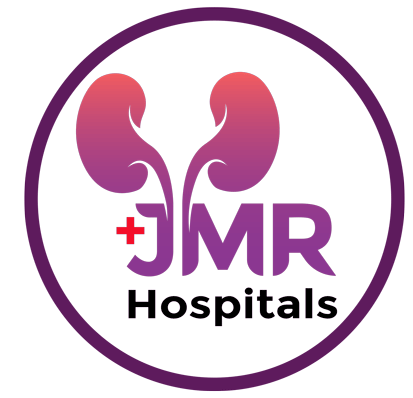- Home
- /
- Laser Surgeries
- /
- A Comprehensive Guide to...
A Comprehensive Guide to Urological Health: Tips and Common Conditions
Maintaining good urological health is essential for overall well-being. The urinary system plays a crucial role in removing waste and excess fluids from our bodies. However, many individuals tend to overlook urological health until problems arise. We will explore the basics of urological specialists in Eluru, provide tips for maintaining it, and discuss common urological conditions. Whether you’re looking to prevent issues or seek guidance on existing concerns, this guide is here to help you.
Understanding Urological Health
The urological system consists of various organs responsible for filtering and eliminating waste from the body, maintaining electrolyte balance, and regulating blood pressure. Key components of the urological doctors in Eluru include the kidneys, ureters, bladder, and urethra. Let’s delve into the functions of each:
- Kidneys: The kidneys filter waste and excess fluids from the blood, creating urine. They also help maintain electrolyte balance and regulate blood pressure.
- Ureters: These are thin tubes that transport urine from the kidneys to the bladder.
- Bladder: The bladder is a muscular sac that stores urine until it’s ready to be eliminated.
- Urethra: The urethra is the tube connecting the bladder to the external body, through which urine is expelled.
Now that we understand the basics, let’s explore some tips for maintaining optimal urological health.
Tips for Maintaining Urological Health
- Stay Hydrated: Adequate hydration is crucial for the health of your urinary system. It helps flush out toxins and prevents the formation of kidney stones. Aim to drink at least eight glasses (64 ounces) of water per day, or more if you’re physically active.
- Maintain a Balanced Diet: A diet rich in fruits, vegetables, and whole grains can promote the best urology specialists in Eluru. Limit the intake of processed foods, excess salt, and sugary beverages. These dietary choices can contribute to kidney problems and high blood pressure.
- Manage Weight: Maintaining a healthy weight is essential for overall health, including urological health. Obesity increases the risk of conditions like kidney disease and urinary incontinence. Regular exercise and a balanced diet can help you achieve and maintain a healthy weight.
- Practice Good Hygiene: Proper hygiene is crucial to prevent urinary tract infections (UTIs). Always wipe from front to back after using the toilet to prevent the spread of bacteria from the anal area to the urethra. Additionally, make sure to empty your bladder before and after sexual activity to reduce the risk of UTIs.
- Avoid Smoking and Excessive Alcohol: Smoking can increase the risk of bladder cancer, while excessive alcohol consumption can lead to kidney and liver problems. Quitting smoking and moderating alcohol intake can significantly benefit your urological health.
- Manage Chronic Conditions: If you have diabetes, hypertension, or other chronic conditions, it’s essential to manage them effectively. These conditions can harm your kidneys and urinary system if left uncontrolled. Follow your healthcare provider’s recommendations and take medications as prescribed.
Common Urological Conditions
Despite our best efforts to maintain urologist doctors in Eluru, various conditions can still arise. Let’s explore some of the most common urological conditions, their symptoms, and treatment options:
- Urinary Tract Infections (UTIs):
- Symptoms: Frequent urination, pain or burning during urination, cloudy or bloody urine, and abdominal discomfort.
- Treatment: UTIs are typically treated with antibiotics prescribed by a healthcare provider. Drinking plenty of water can also help flush out the infection.
- Kidney Stones:
- Symptoms: Intense lower back pain, blood in urine, frequent urination, and nausea.
- Treatment: Small kidney stones may pass on their own, but larger ones may require medical intervention, such as lithotripsy (shock wave therapy) or surgical removal.
- Benign Prostatic Hyperplasia (BPH):
- Symptoms: Frequent urination, difficulty starting and stopping urination, weak urine stream, and a feeling of incomplete emptying of the bladder.
- Treatment: Treatment options range from lifestyle changes and medication to minimally invasive procedures and surgery, depending on the severity of symptoms.
- Urinary Incontinence:
- Symptoms: Involuntary leakage of urine, ranging from occasional dribbling to complete loss of bladder control.
- Treatment: Treatment options include pelvic floor exercises (Kegels), lifestyle modifications, medications, and in severe cases, surgery.
- Erectile Dysfunction (ED):
- Symptoms: Difficulty achieving or maintaining an erection sufficient for sexual activity.
- Treatment: Treatment options include medications (e.g., Viagra), lifestyle changes, counseling, and in some cases, surgical implants.
- Bladder Cancer:
- Symptoms: Blood in urine, frequent urination, pain during urination, and lower back pain.
- Treatment: Treatment for bladder cancer may involve surgery, chemotherapy, radiation therapy, or a combination of these approaches.
- Chronic Kidney Disease (CKD):
- Symptoms: Early stages may have no symptoms, but as CKD progresses, symptoms may include fatigue, swelling, changes in urine output, and high blood pressure.
- Treatment: Management of CKD involves addressing underlying conditions, managing blood pressure, dietary changes, and, in advanced cases, dialysis or kidney transplantation.
Maintaining urological health is essential for overall well-being and a high quality of life. By following the tips mentioned in this comprehensive guide, you can reduce the risk of urological conditions and promote a healthy urinary system. However, if you experience any urological symptoms or have concerns about your urological hospital in Eluru, it’s crucial to consult a healthcare provider for proper evaluation and guidance.

